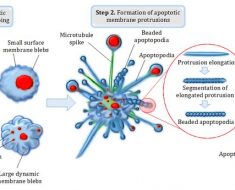It’s a common misconception that bipolar disorder is synonymous with “mood swings.” The mental illness, which, according to the National Institute of Mental Health, affects approximately 4.4 percent of American adults at some point during their lives, is often misunderstood by the public. It also frequently goes undiagnosed or misdiagnosed, meaning that many patients wait years before they’re treated with the right medications and therapeutic techniques.
Like most mental illnesses, there’s no shortage of myths and misconceptions about bipolar disorder. But there are also many lesser-known facts about bipolar that can help us better understand the illness. We asked mental health experts to weigh in on important things to know about bipolar disorder, ranging from symptoms to treatment. Here’s what they told us.
Children can develop bipolar disorder
“Bipolar disorder is usually diagnosed in teens or early adulthood, but many of those people report experiencing symptoms during childhood,” Dr. Sal Raichbach a psychologist and licensed clinical social worker at Ambrosia Treatment Center, tells SheKnows. The illness is more difficult to diagnose in children because its symptoms are similar to common childhood mental health issues like anxiety disorder and ADHD.
More: The Very Real Things Bipolar Disorder Has Cost Me
People don’t cycle between depression & mania quickly
Contrary to common belief, Raichbach says that individuals with bipolar disorder aren’t extremely happy one minute and completely depressed the next. “In reality, the cycles of bipolar disorder usually happen over the course of months or years rather than minutes,” he explains.
Bipolar disorder can be genetic
Individuals who have a first-degree relative with bipolar disorder are more likely to develop the illness themselves. “If a parent has bipolar disorder, for example, his or her children have about a 10 percent chance of developing bipolar disorder,” Dr. Bryan Bruno, medical director at Mid City TMS, tells SheKnows.
It’s often misdiagnosed
“Misdiagnosis is common in people who have bipolar disorder,” Bruno says. As an example, he notes that when patients are in stages of mania, they can be misdiagnosed with ADHD because of symptoms like racing thoughts, restlessness and being easily distracted.
The symptoms can worsen during pregnancy
Bruno tells SheKnows that many women’s symptoms worsen when they’re pregnant. “Approximately 45 percent of women with bipolar disorder have a relapse of either a depressive or manic episode during pregnancy,” he says.
The hallmark of bipolar is mania
Although people often associate mood swings and irritability with bipolar disorder, Dr. Leesha M. Ellis-Cox, a psychiatrist, tells SheKnows that these symptoms are more commonly seen in a different mental illness: major depressive disorder. “The hallmark of bipolar disorder is mania,” she explains. “A manic episode is required to make a diagnosis of bipolar disorder.”
Ellis-Cox says symptoms of mania include extremely high energy, inflated self-esteem (grandiosity), racing thoughts, decreased need for sleep, risky behaviors such as spending sprees and promiscuity, talking faster than normal (pressured speech) and an increase in goal-directed activities.
It’s dangerous to treat bipolar with only antidepressants
Ellis-Cox explains that treating bipolar disorder with only antidepressants can trigger a manic episode. A mood stabilizer is “the mainstay of pharmacologic treatment used for bipolar disorder” and all other medications are supplemental.
Bipolar disorder is frequently misdiagnosed as depression
“Research demonstrates that there is an average of eight years before an individual with bipolar disorder receives an accurate diagnosis,” Ellis-Cox says. It’s common for bipolar patients to initially be diagnosed with major depressive disorder. They’re put on antidepressants, which can make symptoms worse.
There are support groups for those with bipolar disorder
If you or a loved one has bipolar disorder, it’s important to remember that you’re not alone. “One of the best ways to find relief from any mental health issue is to get help and support from those around you who have been there,” Raichbach says. Groups like Depression and Bipolar Support Alliance and Emotions Anonymous offer a community that can provide support and encouragement.

Source: Read Full Article





